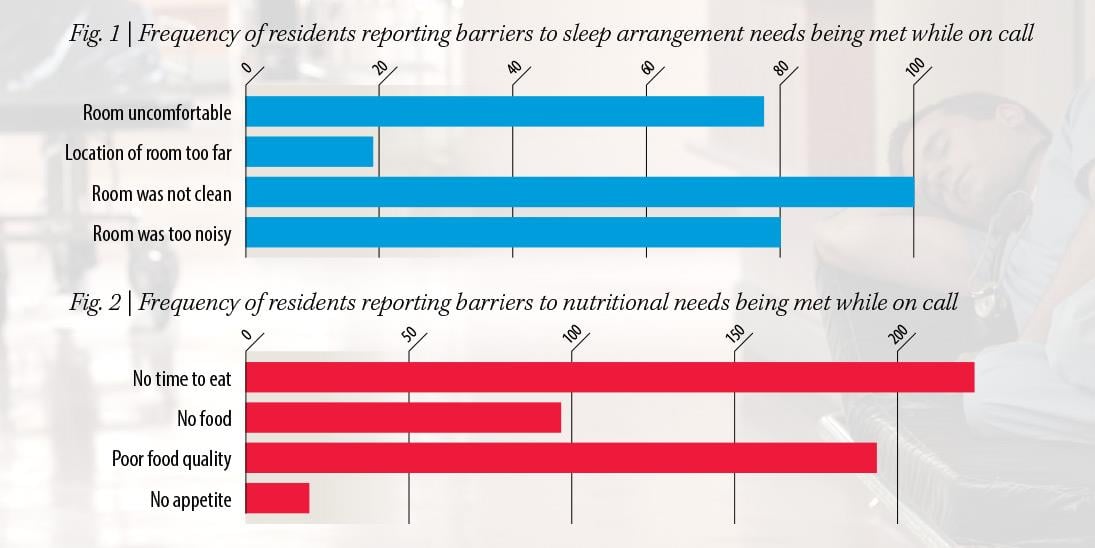Residents, we hear you: Burnout is all too common in life on call. A new study in the Journal of Graduate Medical Education explores why burnout pervades residency, citing some surprising factors that contribute to poor resident well-being.
The study data is based on an online survey from residents at the University of Calgary in Alberta, Canada. To develop the survey, researchers used the WHO-Five Well-Being Index, personal and work-related subscales of the Copenhagen Burnout Inventory and questions on residents’ work dissatisfaction, sleep and nutritional needs on-call. 317 of the 706 eligible residents responded.
The survey revealed that 39 percent of respondents reported that their sleeping needs on call were “never, seldom or only sometimes adequately met.” Meanwhile, 81 percent reported that they “never, seldom or only sometimes” fulfill their nutritional needs on call.
Residents also reported factors that disrupt their sleep arrangements and eating habits. Those barriers to well-being in residency programs include:
- Sleeping rooms that are uncomfortable, dirty and noisy
- Insufficient time to eat
- A lack of quality food
These wellness barriers echo similar research on the hidden pressures of residency programs and burnout woes many residents have shared with the AMA. But how can we help residents avoid skipping meals and running rotations on sleepless fumes, so they’re able to care for themselves as well as their patients?
Voice your concerns and be a part of the solution
The AMA is offering three ways residents can help improve the residency environment to better promote the wellness of physicians in training:
- Tell the ACGME what you think. Attend an education session “Taking the pulse of trainees,” from 1:30 to 2:30 p.m. June 5 as part of the AMA Resident and Fellow Section (RFS) Annual Meeting at the Hyatt Regency Chicago. A representative from the Accreditation Council for Graduate Medical Education (ACGME) will present data on determinants of resident well-being from the organization’s 2013–2014 national survey data. By attending, you’ll have a chance to tell the ACGME face to face how to improve its survey methods, better train physicians in graduate medical education programs to support residents and identify solutions that matter to you.
- Share your perspective in a survey. Take the AMA-RFS survey to share your views about what most impacts your well-being and career as a physician in training. If you’d like to participate, email the section to receive a personalized link.
- Weigh in at a resident health panel at 8:45 a.m. June 6. Residents who are attending the annual meeting in Chicago can join a discussion with their peers and speakers about innovative solutions to physician wellness. Can yoga or dance help residents avoid burnout? Attend the panel to find out and share your own creative ideas.
Also, review the 5 things institutions can do to prevent resident burnout, and educate yourself on the signs of burnout to maintain better wellness.




